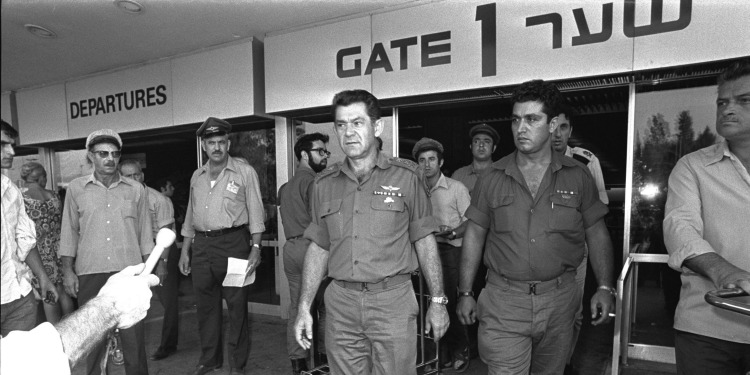Dado of the IDF
The Fellowship | February 21, 2020

Born to a Sephardic Jewish family in Sarajevo, David Elazar made aliyah (immigrated to the Holy Land) in 1940 at the age of 15. Settling on a kibbutz with his family, the boy nicknamed “Dado” joined the Palmach, which was the elite fighting force of the IDF’s precursor. Dado fought in many battles during Israel’s 1948 War of Independence, including Jerusalem’s Battle of San Simon Monastery.
After Israel won her independence, Elazar stayed in the IDF as a career, working his way up its ranks. After serving in the 1956 Sinai Campaign, he took over as commander of the IDF’s armored corps, then was appointed Chief of the Northern Command, a position he held until 1969.
It was this northern post that Elazar held during 1967’s Six-Day War, and one which was crucial for that conflict’s victory for Israel. As commanding officer on Israel’s northern border, he advocated for the occupation of the Golan Heights, then still part of Syria. And under Elazar’s command, the IDF captured the Golan Heights in only two days, a strategic area which Israel still holds.
Because of his lifetime of service and leadership, Dado Elazar was appointed IDF Chief of Staff (the Israeli military’s highest position) on January 1, 1972. The beginning of his time leading the IDF was fraught with terrorism. In May, the Japanese Red Army killed 25 and wounded 71 in what is now known as the Lod Airport Massacre. Then in September at the Munich Summer Olympic Games, Palestinian terrorists kidnapped and murdered eleven Israeli athletes.
Elazar then led the IDF during the Yom Kippur War in 1973. At war’s end, he submitted his resignation, but remains a controversial figure, as the Israeli public never made him the scapegoat for their nation’s unpreparedness for the war.
This lifelong servant and soldier died only three years later of a heart attack while swimming. He is buried, along with many of the Jewish state’s military heroes, at Mt. Herzl cemetery in Jerusalem. And despite controversies surrounding his last years with the IDF, “Dado” or “The Big D” is still remembered by the Israeli people as a leader who kept his cool, made the correct strategic choices, and always did his best to stand for his homeland, Israel.
